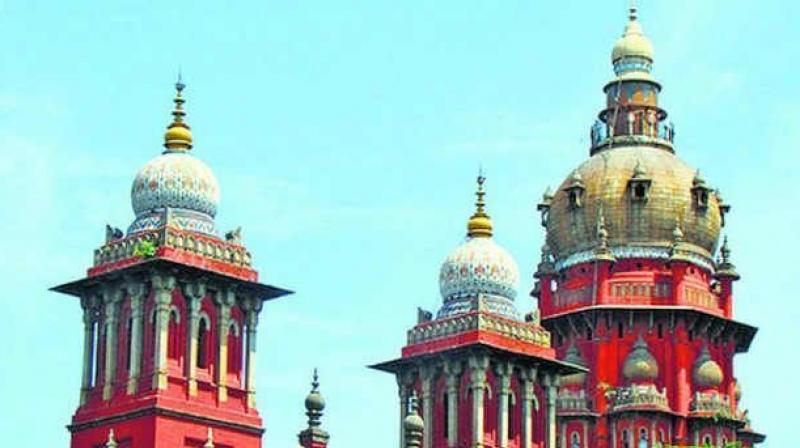Terminated law officers can continue, says Madras High Court
The bench said the standstill by the reason of the interim order of July 5, will cause serious prejudice to the litigants.

Chennai: The Madras high court on Thursday clarified that the government pleaders and public prosecutors whose appointments have been terminated (in seven districts) may continue to represent the state until further orders unless otherwise directed.
In case of any complaint against any individual law officer, it will be open to the state to disengage that particular law officer and engage a different law officer from the old panel, said a division bench comprising Chief Justice Indira Banerjee and Justice M. Sundar while passing interim orders on a batch of petitions from former City public prosecutor M.L.Jagan and 28 others.
The bench said all the petitions pertaining to the appointment of public prosecutors/law officers in different districts in the state of Tamil Nadu be posted for hearing on July 31. Its attention has been drawn to an interim order passed on July 5, 2017 by a division bench of Madurai Bench of this court continuing the stay of operation of the government orders appointing public prosecutors and government pleaders (in respect of 7 districts namely Tuticorin, Karur, Tirunelveli, Pudukottai, Kanyakumari, Trichy and Madurai) and at the same time, making it clear that the order would not enure to the benefit of the erstwhile government pleaders and public prosecutors. The division bench had also clarified that “In short, the interim order would not give any right to the disengaged law officers to function either as public prosecutors or government pleaders before the subordinate courts”. Advocate general submitted that the interim order needs to be vacated, varied and/or modified as the same has given rise to an impasse in the concerned districts since the appointment of new law officers/public prosecutors has been stayed, but the disengaged public prosecutors/law officers cannot also appear. The matters in which the state was a party cannot be heard, the bench added.
The bench said the standstill by the reason of the interim order of July 5, will cause serious prejudice to the litigants. No case involving the state, including cases of heinous crimes, atrocities against women, sexual abuse of women and children can be heard. The courts were also reeling under pressure of accumulation of arrears. Some modification/clarification was, therefore, imperative. “The interim order dated July 5 is modified/clarified to the extent that the appointments that have been terminated may continue to represent the state until August 16 or further orders unless otherwise directed.

